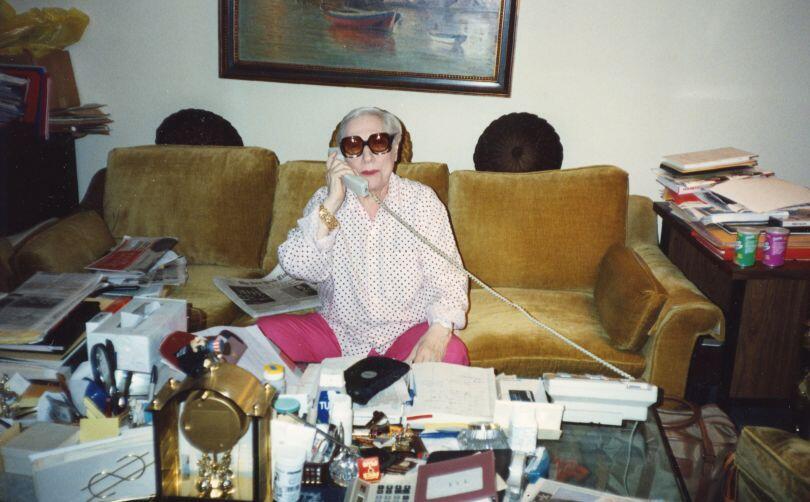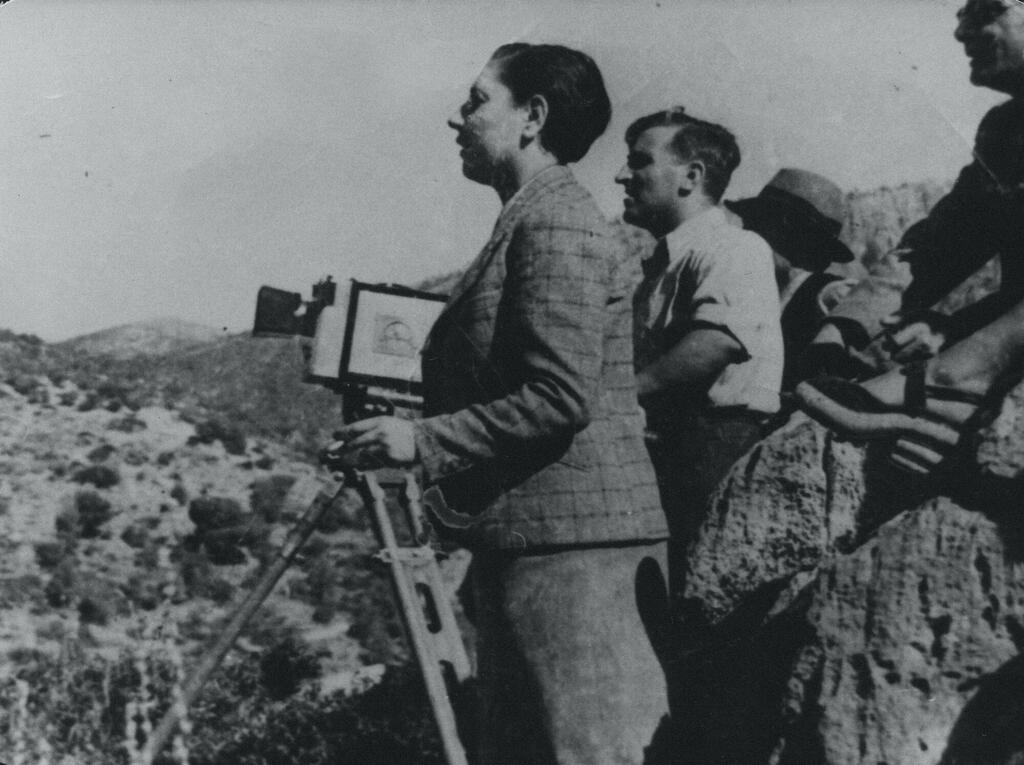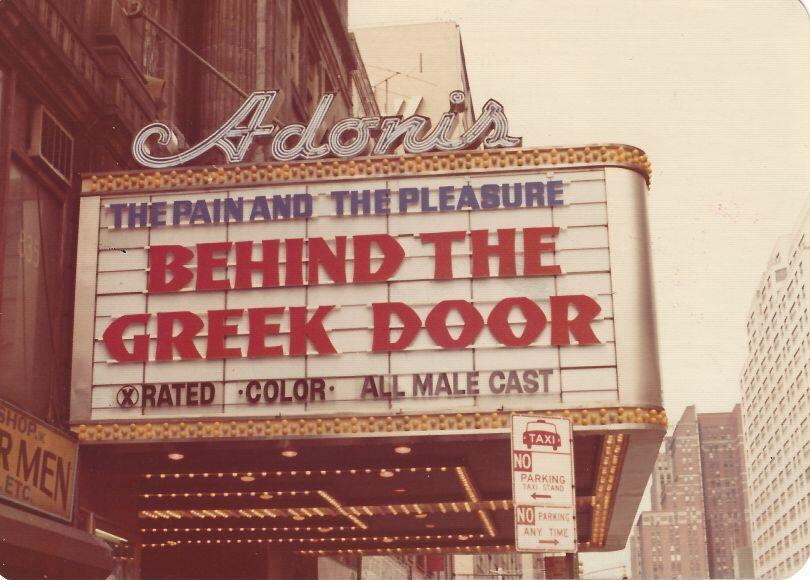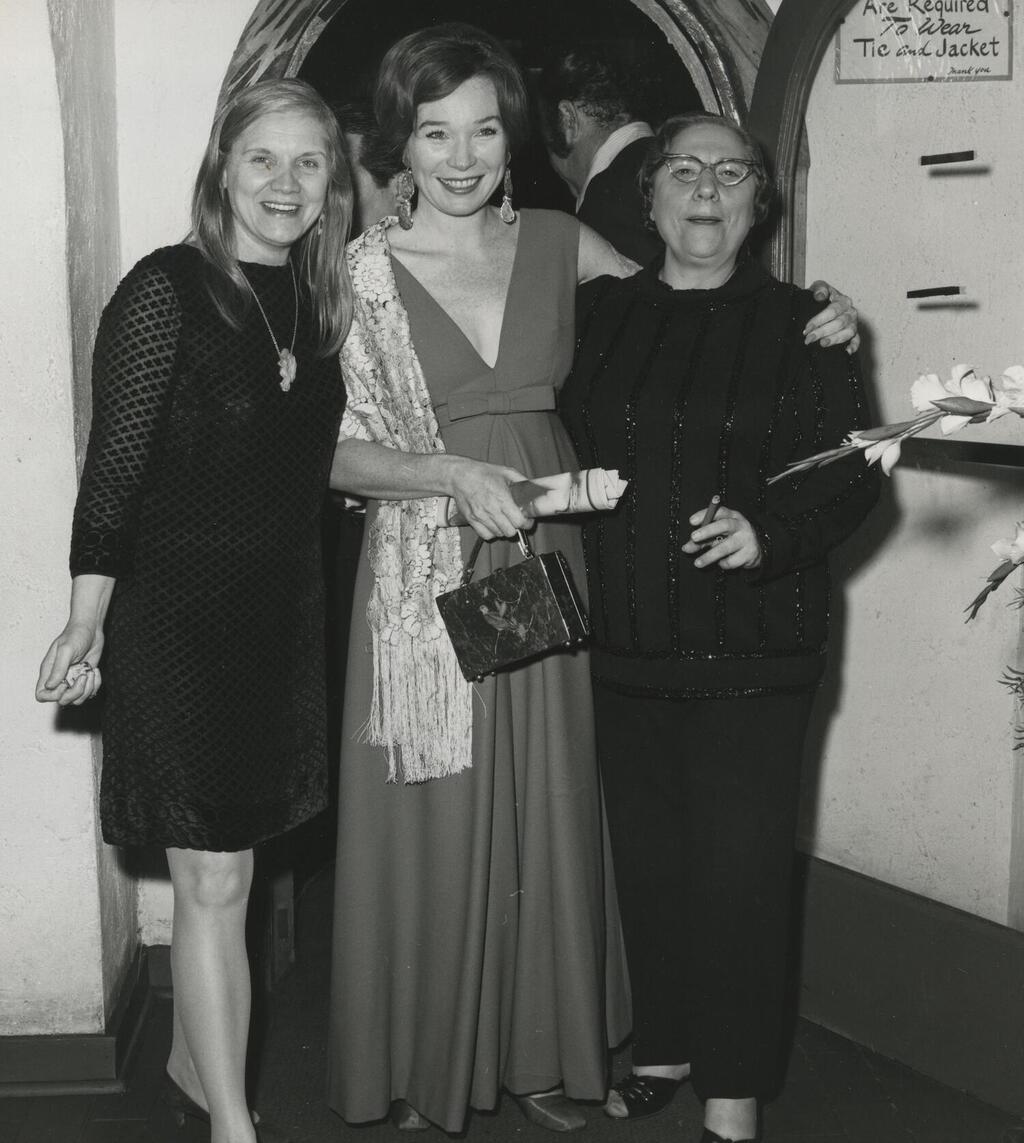Getting your Trinity Audio player ready...
Well, well, well, look who we have here! Chelly Wilson, a Greek Jew who raised her kids Christian, a devoted wife who also happened to be a lesbian, and to top it off, a former porn theater owner who managed to escape Athens right before WWII.
Where else could she have been all of these things? You guessed it - only in the one and only Times Square, the love-it-so-much-you-want-to-say-it-again New York!
She certainly had a colorful life, but don't let her inspirational story fool you. Wilson's anecdotes about her business dealings and her view of money show that she was far from a saint.
Sure, she pulled herself up from her marginalized identity and became wealthy and beloved, but there's a fine line between purely evil and merely a misfit, and Wilson's story exemplifies that.
Born into a religious Jewish family in Salonika, Greece, she was arranged to marry a man she despised. In her own words, she wanted to kill him every time he touched her. After two children and a divorce, Wilson left Greece in 1939, leaving her children behind.
She didn't have custody of her son, and she entrusted her daughter Paulette to a non-Jewish woman, making her promise not to let anyone else take her. So much for motherly love.
With a knack for business and a unique set of personal experiences, Chelly Wilson made a name for herself in the gritty streets of Times Square, New York. The new documentary “Queen of the Deuce” premiered at the DOC NYC festival, showcasing the life of this unlikely icon.
Despite a deeply religious Jewish upbringing and an arranged marriage that made her want to kill her husband, Wilson managed to leave Greece and start anew in America. She sold hot dogs and enjoyed the companionship of her Jewish projectionist husband, who provided her with cigarettes.
Wilson even had relationships with two women who shared her apartment, proving that she was far from conventional.
While not involved in porn just yet, Wilson owned a theater where she showed Greek films. But as the market for these films dried up, she pivoted to porn and soon owned several theaters in Times Square.
There, in the heart of midtown Manhattan, a new world of smut emerged, attracting thirsty G.I.s, white flight, and the changing character of the city. Despite politicians trying to clean up the area and put what they viewed as depravity to an end, Wilson stuck it out until the 90s.
And in between running her businesses, she also raised money to support the Greek army and helped Greek immigrants obtain legal status in the U.S. Who knew that a Greek Jew who sold hot dogs could become the “Queen of the Deuce”?
In the midst of the ‘80s controversy surrounding porn on the Deuce, Chelly Wilson remained indifferent to the feminist arguments against it. As her son-in-law Don Walters, who was also involved in the film industry on the Deuce, recalled, Wilson didn’t give a damn about the content. She had no qualms or hesitations about it.
Well, maybe one. She just cared that the content, whatever it may contain and whatever it may suggest - Just make it profitable. Reports indicate that she actively sought out sexually explicit content and demanded more close-up shots to increase profits.
In fact, she even ordered cuts to some films to avoid legal issues. While Wilson is credited with being one of the first people to bring gay porn to New York City, it’s suggested that this was more of a financial calculation than a brave social stance.
She recognized a large, untapped market of gay porn consumers in the city and charged them more than straight film audiences.
It seems that Wilson was more interested in making deals than in the content of the deals themselves. Her associates in the documentary suggest that working on the Deuce at that time meant having connections to the mafia.
While it’s unclear whether Wilson had direct connections to organized crime, her grandson describes her as “like a mafia queen” in the film.
Wilson admired people who knew how to get things done and would go around the law to turn a profit, and unfortunately, she got taken advantage of by a few of them.
Despite her some might-say questionable business practices, Wilson did have admirers, including John Colasanti, who worked for Show World Center. He believed that Wilson liked him because he admired her, saying in the film that “she saw the admiration I had on my face when I would speak to her.”
According to film producer Arthur Morowitz, Wilson's tactics were not always fair in business. In 1965, she took advantage of his inexperience by charging him an exorbitant price to advertise the film he had invested in.
Morowitz noted that it was a "typical Chelly kind of deal," implying that Wilson had a reputation for such practices.
While some may argue that in business, anything goes, it is possible that Wilson may have taken this philosophy too far. However, in the porn industry, where profit margins are high and competition is fierce, one can understand how Wilson may have justified her approach to business.
Perhaps Morowitz should have researched reasonable advertising costs before investing in the film. Ultimately, Wilson was a shrewd businesswoman who knew how to navigate the industry and turn a profit.
The documentary itself offers a vivid depiction of Wilson's wild and unrestrained life, showcasing her as a bold, intrepid powerhouse who fearlessly navigated the male-dominated world of the Deuce.
Valerie Kontakos, the director of the documentary, masterfully employs a mix of archival footage, audio interviews, animated sequences, and accounts from Wilson's loved ones and acquaintances to trace her unorthodox trajectory.
Everything from her tumultuous upbringing and oppressive marriage in Thessaloniki to her brave act of sheltering her children from the Nazis and her eventual escape to America.
Wilson's ability to connect with people from different walks of life and her magnetism are highlighted in the documentary, along with her successful career in the porn industry and as a restaurant owner.
Her personal life is also explored, including her second marriage, two female lovers, and her four children. Her daughter Bondi Walters attests to her mother's ability to draw people to her, despite not being the type to network or schmooze actively.
According to a New York Post article, Wilson was considered a true representation of the American dream. However, if achieving success means engaging in cutthroat business practices, the value of such a triumph might be contested among some.
Perhaps when an individual feels like they don't belong, they gravitate towards others who also feel out of place, without considering why or which parts of themselves don't fit in. If Wilson had been born 90 years later, would her values have differed?
Would she have supported LGBT causes and taken part in Pride marches, criticizing patriarchy and white Christian nationalists instead of aligning herself with mafiosos and other ambiguous troublemakers whose actions could be interpreted as either positive or negative depending on the situation?
The film and journalists are unable to provide definitive answers to these questions. Nevertheless, it's worth contemplating the effects of consistently needing to justify oneself. This could lead a person to start justifying other things as well.





